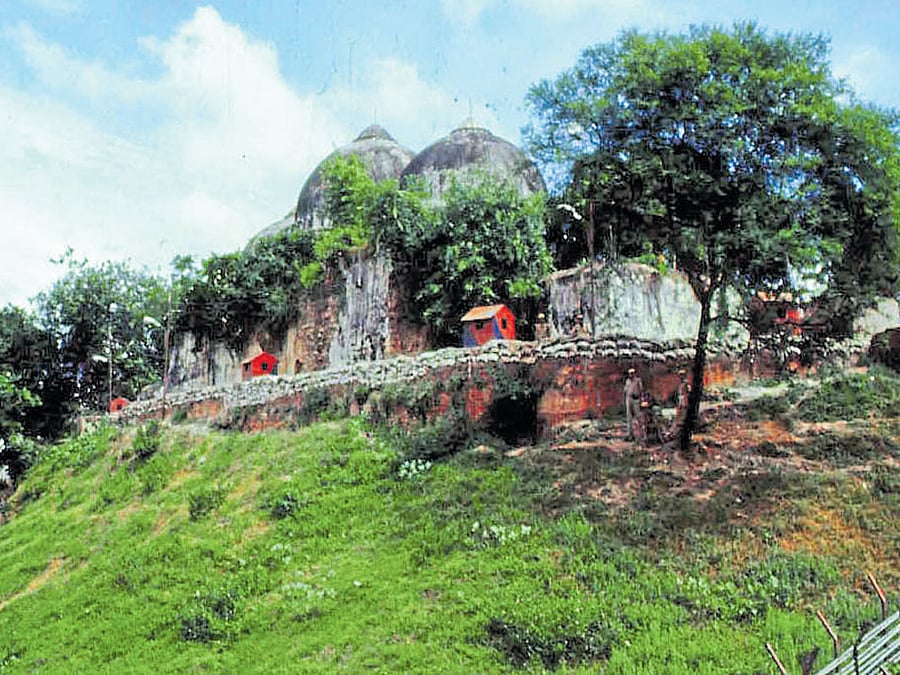
The Supreme Court on Monday put the matter pertaining to the Ayodhya dispute, involving the Babri Masjid and the Ram Temple, to January 2019 for determining a date of hearing.
A bench presided over by Chief Justice Ranjan Gogoi declined to give an early date, saying "we have our own priorities".
The court said the matter would be put before an appropriate bench in the first week of January for fixing a date of hearing.
The top court did not agree to a plea made by Uttar Pradesh counsel Solicitor General Tushar Mehta and Ram Lalla counsel, senior advocate C S Vaidyanathan for putting the matter for fixing the date after Deepavali vacations.
"We have our own priorities. The matter would be put before an appropriate bench in January for fixing a date of hearing. We don't know if it would be in January, March or April," the bench said.
READ: In Ayodhya litigants hope for early verdict
On Monday, the top court was expected to take a call on the future course of hearing in the case arising out of civil appeals against the 2010 Allahabad High Court judgement that favoured dividing the land in question into three parts among the Sunni Waqf Board, the Nirmohi Akhara and Ram Lalla.
“List the matters in the first week of January, 2019, for fixing a date of hearing before the appropriate bench,” the bench, also comprising justices Sanjay Kishan Kaul and K M Joseph, said in its order, within minutes of the hearing.
With this order, it is very unlikely that the appeals would be decided anytime before the next general elections.
Notably, the top court had on September 27 declined to set up a larger bench for reconsidering its 1994 verdict which held that a "mosque is not an essential part of the practice of Islam".
The Muslim side had vehemently contended that if the 1994 verdict was not reviewed, it would have an adverse effect on their plea in adjudication of the present case. The Hindu sides claimed that the issue was raised belatedly to delay the adjudication of the matter.

